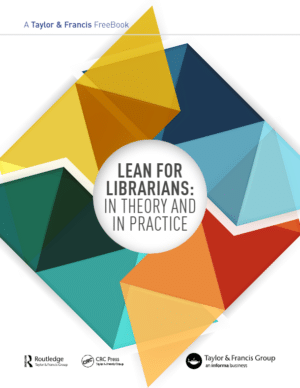Lean for Librarians: in Theory and in Practice
Developed by Toyota in the 1950s, Lean is a philosophy that is now more than 60 years old. It has been deployed by organisations around the world in industries of all shapes and sizes, from the multinational manufacturing corporations who first developed it to technology startups who have used it to fuel exponential growth.
Because Lean is all about making the most of existing resources, it can help organisations which are seeing revenue or customer numbers drop at least as much as those which are growing. Further, as it is not tied to a particular sector or business function it can help almost any area of a business, from the factory floor to the marketing department. Lastly, because Lean is not a “quick fix” or a one-time project it can help you to drive real, lasting change in the way things are done.
Academic libraries are today in a situation that sees them dealing with challenges from many different directions: digital discoverability, shrinking budgets, and increasing expectations each bring their own set of difficulties. Lean can help with all those problems. Yet, many librarians have not seen the opportunities that Lean can bring. Perhaps this is because it is seen as something that management do, rather than librarians; or something that will be big, difficult, and time-consuming to implement; or something that isn’t applicable to the world of the academic library.
The aim of this resource is to show you some of the principles behind Lean and how libraries in the UK are already seeing success with it. It outlines some of the core ideas and techniques needed for thinking Lean, following each new principle with a case study from a library at an institution in the UK.

